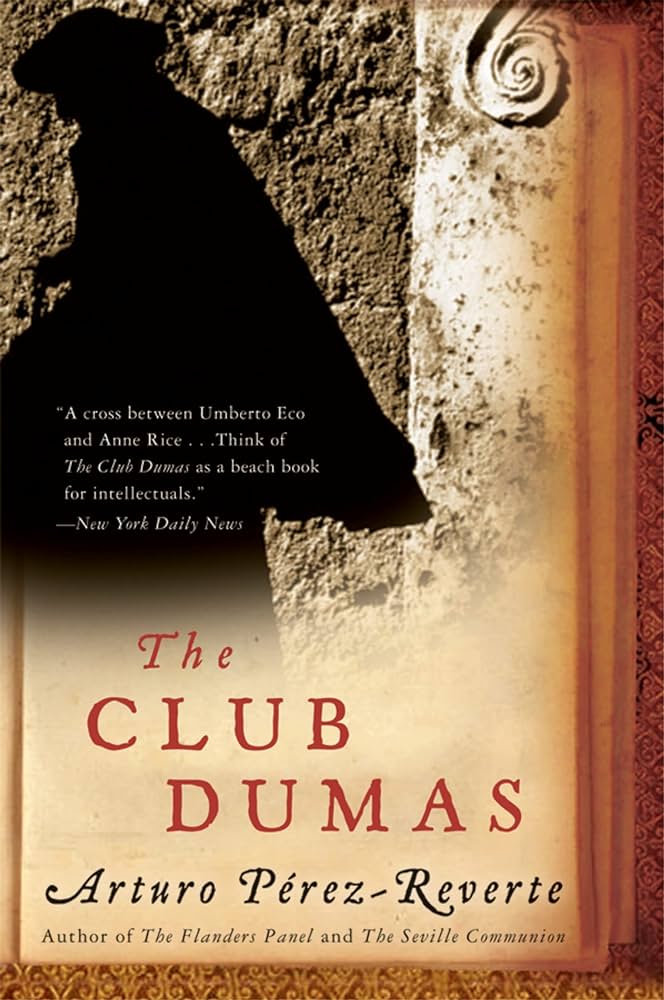I am perhaps disqualified from really opining on the quality of The Club Dumas, given that I’ve never actually read The Three Musketeers. [1] And so much of the novelistic winking and nudging went — if not over my head, because the narrator and characters bent over backwards to make sure I understood the implications and allusions — a little underappreciated, as if pulling on a nostalgia that wasn’t quite there.
This was, in many ways, a guilty pleasure read. If you give me a literary detective story with some murders and references to bygone writers — I can’t help it, it’s like a more pretentious Da Vinci Code, it is candy to me.
And, like candy, there are unsavory ingredients that coat your mouth once the initial sugar rush is wiped away. It’s convenient to lampshade lazy devices like “one-dimensional femme fatale blonde” and “red herring narrator mastermind” and “Mary Sue female companion” as homages to the books this novel is lovingly aping, but so much of the novel’s progression feels flat and uninspired once you remove that single coat of postmodern paint. Pérez-Reverte’s Corso is a blend of every hard-boiled Sam Spade knockoff, a sort of Johnny Walker Red of noir fiction.
That being said, it’s hard for a book like this to end satisfyingly — and I think The Club Dumas pulls it off, and performs the rare trick where the mystery is less interesting than its solution. [2] And what an ending scene — and ending line!:
Everyone gets the devil he deserves.
It can be said, to this book’s enduring credit, that it inspired me to do so at some point this year. ↩︎
I’m not sure whether to call it a rejection or affirmation of postmodernism, but the ‘reveal’ that the two stories were entirely distinct and Corso’s mistake was thinking they were intertwined was a neat one, and I think says more about our participation in the books we love than the actual pastiche elements. ↩︎
★★★★
